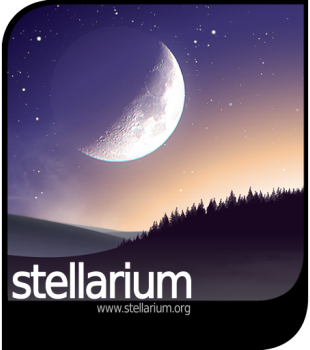Events Calendar
-
Tuesday 08 January 2019 19:15 to 21:30
Speaker Mr. Thomas Rennie
Galaxies.
In this talk we’ll look at the different classifications of galaxies in the universe, exploring each type of galaxy in depth, however I won’t just state the results…
but look at how scientists have found them. Finally, we’ll look at our own Milky Way, and how much we know about it
-
Dr Sergei Zharkov. Observing the sun from Earth and space.
Tuesday 22 January 2019 19:15 to 21:30
Dr Sergei Zharkov gained his BA in Mathematics in 1996 from Cambridge University and his PhD on Conic Structures in Differential Geometry in 2000, from the University of Glasgow.
He started his research in solar physics by working on solar feature recognition algorithms for the European Grid of Solar Observations, moving to local helioseismology research at the University of Sheffield with Prof M J Thompson in 2005.
Sergei joined the Solar Physics group at Mullard Space Science Laboratory, UCL, in 2009 where he worked on the detection and physics of sun-quakes. He was appointed as a lecturer at Hull in 2013.
-
Rod Hind. Gravity Waves: From Newton to LIGO and beyond
Tuesday 05 February 2019 19:15 to 21:30
The first direct detection of gravity waves was announced in early 2016. In this talk I trace our ideas
about gravity from Isaac Newton’s “classical theory” that still dominates our everyday experiences
through to Einstein’s General Relativity and its implications. General Relativity allowed astronomers
to understand the history of our expanding universe and provides the refinements needed to make
GPS accurate but the prediction of gravity waves remained enigmatic and extremely difficult to
verify. The recent discovery is just the first step to exploring a whole spectrum of gravity waves that
may well give us a view of the “Big Bang” itself. Includes some demonstrations and audience
participation.
-
Wonders of the Universe by Prof Brad Gibson
Tuesday 12 March 2019 19:15 to 21:30
Wonders of the Universe. A Trip Advisor Top Ten Countdown.
Prof Gibson is MCA Director and Head of Physics and Mathematics at Hull University.
One of the country's most influential scientists, his 200 publications has amassed 20,000 citations
from his peers.
His research was named one of the top 10 News story of the year by The National Geographic Magazine.
With the help of data from the hubble telescope he determined the expansion rate of the universe, for which
his team was awarded the influential Gruber prize in Cosmology.
Always a very entertaining science communicator we are delighted to have him speak tonight.
-
Tuesday 26 March 2019 19:30 to
The WYAS AGM.
The present committee stands down and the current members vote in a new one.
This year there are a number of suggested changes to the constitution which require the membership to vote on.
This meeting allows you the members to decide the direction the society is to take in the coming year.
Please make a note of the date in your diary. Tuesday 26th March
-
White Dwarves and the Interstellar Medium
Tuesday 02 April 2019 19:15 to 21:30
Professor Martin Barstow: Professor of Astrophysics and Space Science, Department of
Physics & Astronomy, University of Leicester.Prof. Barstow has a strong background in the analysis of X-ray, EUV, UV, optical and
infrared data from white dwarfs.He has also made internationally recognised contributions
to the study of hot white dwarfs and coronally active stars through the analysis and
interpretation of ground and space based observations in optical, UV, EUV and X-ray
wavebands. Complementing this has been an active programme of theoretical studies of the
white dwarf atmospheres and the interstellar medium. -
“The Future for Space Exploration? It’s Life Jim, but not as we Know IT”
Tuesday 09 April 2019 19:15 to 21:30
Dr Martin Braddock.
Space exploration and colonization by astronauts is challenged by exposure to radiation and the
ergonomics of living and working in an environment of microgravity. The adverse effects of
prolonged exposure to radiation and microgravity can be predicted both by observations in
astronauts and in animals on short duration space flight. Long term space travel to Mars and beyond
will demand countermeasures currently under development in a series of roadmaps from the NASA
Ames laboratory and from space agencies around the glove in a collaborative effort. Developments
in machine-based learning (MBL), a component of artificial intelligence (AI) raise the prospect that
future space exploration may be either semi, or fully automated. This talk will review the effects of
radiation and microgravity on the human body and describe features of AI that ask the question will
future space exploration and colonization be human-based?Martin is passionate about all aspects of Astronomy, Cosmology and Astrobiology and is enrolled on
the Open University’s MSc degree in Space Sciences and Technology. He is a member of the
Mansfield and Sutton Astronomical Society and was elected a Fellow of the Royal Astronomical
Society in May 2015. He is interested in the effects of gravitational extremes on physiology,
ergonomics of space craft design and the development of Space Medicine.
-
Tuesday 28 May 2019 19:15 to 21:30
We would like to present one of our own members, Mr David Jakes who will enlighten us all with an informative talk on Quarks to Quasars.
-
Tuesday 04 June 2019 19:15 to 21:30
A talk by Mr McDonnell Douglas on manned spaceflight.
-
Sunday 23 June 2019 11:00 to 16:00
Come and join us for a day celebrating our nearest star...the Sun. Join us viewing our sun through special solar scopes with our members on hand to explain what you can see.
There will be various stalls with activities, games and prizes, rocket making and launching, short but informative talks and you are welcome to enjoy the atmosphere of the observatory while having refreshments. Hot food will also be available from The Grange next door. Everyone is welcome.
Events & News
